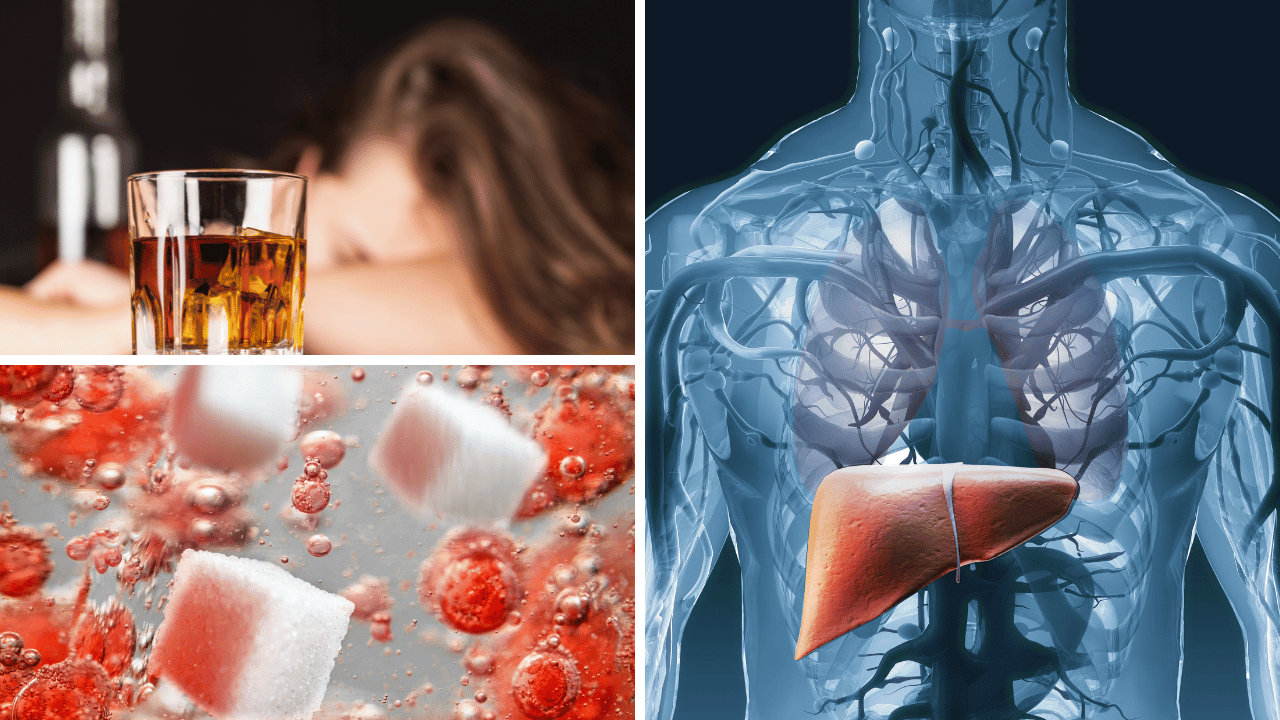Are you considering the Keto diet for weight loss? While this low-carb, high-fat diet has gained popularity for its potential to help shed pounds quickly, it's essential to understand the pros and cons before diving in.
In this beginner’s guide, we'll explore the advantages and disadvantages of the Keto diet, as well as provide actionable steps to get you started. By the end, you'll have a clear understanding of whether the Keto diet is right for you and how to approach it safely and effectively.
Key Takeaways:
- The Keto diet is a low-carb, high-fat diet that forces the body to burn fat for energy.
- Proponents claim that the Keto diet can lead to rapid weight loss and various health benefits.
- Critics argue that the diet may have potential drawbacks, such as nutrient deficiencies and difficulty in maintaining.
- Actionable steps for beginners to start the Keto diet, including focusing on whole foods, staying hydrated, and monitoring electrolyte intake.
The Keto Diet: What is it?
The Keto diet is a low-carb, high-fat diet that aims to put the body into a state of ketosis. In this metabolic state, the body burns fat for energy instead of carbohydrates, leading to weight loss and potential health benefits.
By drastically reducing carbohydrate intake and increasing fat consumption, the Keto diet forces the body to adapt, which may result in rapid weight loss and improved overall health for some individuals. However, it's essential to consider the potential drawbacks and consult with a healthcare professional before starting the diet.
The Pros and Cons
The Keto diet offers several advantages, such as rapid weight loss, reduced appetite, and increased satiety. Additionally, it may provide various health benefits, including improved blood sugar control and reduced inflammation.
However, the diet has potential drawbacks, including nutrient deficiencies, difficulty in maintaining, adverse effects like the "keto flu," and strain on the kidneys. Furthermore, social limitations may arise due to the restricted nature of the diet. Considering both the pros and cons, it's crucial to weigh the potential benefits against the possible risks before deciding if the Keto diet is right for you.
Pros:
- Rapid weight loss;
- Reduced appetite and increased satiety;
- Improved blood sugar control;
- Reduced inflammation.
Cons:
- Possible nutrient deficiencies;
- Difficulty in maintaining;
- Adverse effects like the "keto flu;"
- Strain on the kidneys;
- Social limitations due to the restrictive nature of the diet.

The Benefits of the Keto Diet: A Deeper Dive
The Keto diet's primary advantage is its rapid weight loss. By drastically reducing carbohydrate intake and increasing fat consumption, the body is forced to burn fat as its primary energy source. This process, called ketosis, leads to a quick reduction in body fat, which can be a significant motivator for those looking to lose weight.
Additionally, the Keto diet's high-fat content helps keep individuals feeling full and satisfied, making it easier to stick to the diet plan.
One of the most appealing aspects of the Keto diet is its ability to suppress appetite and increase satiety. High-fat, low-carb meals provide a sustained energy source, which helps keep hunger at bay.
Furthermore, the Keto diet's high protein content helps maintain muscle mass while burning fat, contributing to a more toned and healthy appearance. This combination of appetite reduction and increased satiety makes the Keto diet an attractive option for those looking to lose weight and improve their overall health.
In addition to weight loss, the Keto diet may offer various health benefits. For individuals with type 2 diabetes, the Keto diet's low-carb nature can help improve blood sugar control by reducing insulin resistance.
Additionally, the diet's high-fat content may help reduce inflammation, a contributing factor to many chronic diseases. While more research is needed to fully understand the Keto diet's health benefits, these potential advantages make it an intriguing option for those seeking a healthier lifestyle.

Keto Diet Concerns: The Diet May Not Be for You
The Keto diet's primary focus on high-fat, moderate-protein, and low-carbohydrate intake can lead to nutrient deficiencies if not carefully planned. Many fruits and vegetables, which are rich in essential vitamins, minerals, and fiber, are restricted due to their high carbohydrate content. As a result, those on the Keto diet may miss out on important nutrients that are crucial for overall health and well-being.
The Keto diet can be challenging to maintain long-term due to its strict macronutrient ratios and limited food choices. Many people find it difficult to adhere to the diet's guidelines, especially when socializing or dining out. This can lead to feelings of frustration, guilt, and even failure, which may have negative effects on one's mental and emotional health.
Transitioning to a low-carbohydrate diet can cause temporary side effects, often referred to as the "keto flu." Symptoms may include fatigue, dizziness, irritability, and nausea, which can make the initial stages of the Keto diet challenging for some individuals. These symptoms typically subside within a few days to a week, but they can be a deterrent for those who are not fully committed to the diet.
The Keto diet's emphasis on high-fat and protein intake can put a strain on the kidneys, as they must work harder to process and eliminate the waste products produced by the metabolism of these nutrients. This can be especially concerning for individuals with pre-existing kidney issues or those at risk for developing kidney problems.
The Keto diet can be socially isolating, as it restricts the consumption of many common foods and beverages. This can make it difficult to enjoy meals with friends and family, attend social gatherings, or dine out without feeling restricted or left out. In some cases, this social limitation can lead to feelings of loneliness, isolation, and even depression.

The Keto Diet: How to get Started
Focus on Whole Foods
One of the most important actionable steps for beginners is to focus on consuming whole foods. This means selecting foods that are minimally processed and as close to their natural state as possible. Whole foods are rich in essential nutrients and can help ensure that you're getting the necessary vitamins and minerals while on the Keto diet.
Some examples of whole foods to incorporate into your Keto diet include:
- Vegetables: Leafy greens, broccoli, cauliflower, and other low-carb vegetables.
- Healthy Fats: Avocados, nuts, seeds, and oils like olive oil and coconut oil.
- High-quality Protein: Grass-fed meats, wild-caught fish, and pasture-raised eggs.
By focusing on whole foods, you'll not only be following a healthier Keto diet, but you'll also be setting yourself up for long-term success.
Stay Hydrated
Staying hydrated is crucial for overall health, and this is particularly important when following a Keto diet. As your body adapts to burning fat for energy instead of carbohydrates, it may produce more ketones, which can lead to increased water loss. Additionally, the Keto diet encourages the consumption of high-fat foods, which can be dehydrating.
To stay hydrated on the Keto diet, make sure to:
- Drink plenty of water throughout the day.
- Incorporate electrolyte-rich foods and beverages, such as bone broth, leafy greens, and coconut water.
- Monitor your electrolyte intake and consider supplementing it if necessary.
By staying hydrated, you'll help your body function optimally and avoid common issues like fatigue and headaches that can occur during the Keto diet's adaptation phase.

Monitor Electrolyte Intake
When following a Keto diet, it's essential to monitor your electrolyte intake. Electrolytes, such as sodium, potassium, and magnesium, play a crucial role in maintaining proper fluid balance, muscle function, and nerve function. As your body adapts to the Keto diet, it may excrete more electrolytes, which can lead to deficiencies if not properly replenished.
To monitor your electrolyte intake, consider:
- Eating electrolyte-rich foods like leafy greens, avocados, nuts, and seeds.
- Supplementing with electrolyte powders or tablets, if necessary.
- Consulting with a healthcare professional to ensure your electrolyte levels are within a healthy range.
By staying on top of your electrolyte intake, you'll help your body function optimally and prevent potential issues like muscle cramps, fatigue, and headaches.
Gradual Transition
Transitioning to a Keto diet can be challenging, both physically and mentally. To make the process easier, consider a gradual transition rather than an abrupt shift. This can help your body adapt more smoothly to dietary changes and reduce the likelihood of experiencing uncomfortable side effects.
To transition gradually to the Keto diet, try:
- Reducing your carbohydrate intake slowly over several weeks.
- Increasing your healthy fat intake as you decrease your carbohydrate intake.
- Monitoring your body's response and adjusting as needed.
By taking a gradual approach, you'll give your body time to adapt to the Keto diet and increase your chances of long-term success.
Consult with a Health Professional
Finally, it's always a good idea to consult with a healthcare professional before starting any new diet, including the Keto diet. They can provide personalized advice based on your individual needs and health history, as well as help you monitor your progress and make any necessary adjustments.
When consulting with a healthcare professional, be sure to:
- Discuss your goals and reasons for starting the Keto diet.
- Share any relevant medical history or concerns.
- Get guidance on potential supplements or modifications to suit your specific needs.
By consulting with a healthcare professional, you'll be better prepared to embark on your Keto diet journey and achieve your desired health outcomes.

Keto Diet FAQs
What are the basic rules of Keto?
The basic rules of Keto are to consume high-fat, moderate protein, and low-carb foods to achieve ketosis, where the body burns fat for fuel instead of carbs. Focus on whole foods like vegetables, healthy fats, and high-quality protein while staying hydrated and monitoring electrolyte intake. Gradually transition to the Keto diet and consult with a healthcare professional for personalized advice.
What is forbidden in the Keto diet?
In the Keto diet, foods high in carbs like sugary treats, grains, starchy vegetables, and most fruits are forbidden to maintain ketosis. Processed foods, unhealthy fats, and alcohol should also be avoided. Instead, focus on whole foods like vegetables, high-quality proteins, and healthy fats to support your Keto journey.
What does the Keto diet involve?
The Keto diet involves consuming high-fat, moderate protein, and low-carb foods to achieve ketosis, where the body burns fat for fuel. Focus on whole foods like vegetables, healthy fats, and high-quality protein while staying hydrated and monitoring electrolyte intake. Gradually transition to the Keto diet and consult with a healthcare professional for personalized advice.
What are the top 10 Keto foods?
The top 10 Keto foods are: 1) Avocados, 2) Cheese, 3) Plain Greek yogurt, 4) Nuts and seeds, 5) Fatty fish like salmon, 6) Leafy greens, 7) Eggs, 8) Meats like chicken and beef, 9) Olive oil and coconut oil, 10) Berries in moderation. These foods are high in healthy fats and protein while being low in carbs.
How much weight can you lose in 1 week on Keto?
Initial weight loss on Keto can be rapid, with some losing up to 5-10 pounds in the first week due to water weight loss. However, long-term sustainable weight loss varies greatly depending on factors like metabolism, activity level, and adherence to the diet. Aim for a healthy and steady weight loss of 1-2 pounds per week for sustainable results.

May we say in conclusion…
The Keto diet can be an effective weight loss tool for those who are committed to following the guidelines and making necessary lifestyle changes. By focusing on whole foods, staying hydrated, and monitoring electrolyte intake, beginners can set themselves up for success on the Keto diet.
However, it's essential to remember that the Keto diet may not be suitable for everyone, and it's crucial to consult with a healthcare professional before embarking on any significant dietary change.
It's also important to note that long-term adherence to the Keto diet may be challenging for some individuals, and it's essential to find a sustainable approach to weight loss and overall health.
The Bottom Line
Ultimately, the key takeaways for those considering the Keto diet for weight loss are to focus on whole foods, stay hydrated, and monitor electrolyte intake. By following these guidelines and working with a healthcare professional, individuals can make informed decisions about their weight loss program and determine if the Keto diet is the right choice for them.











